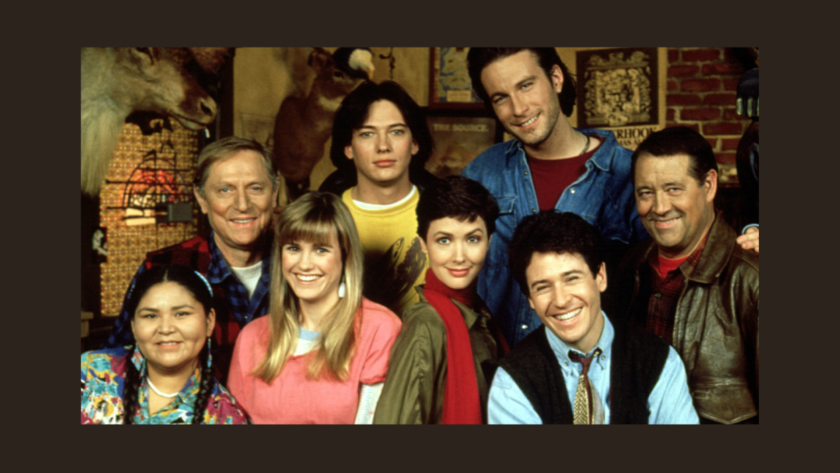Q: Why did you sign up for Running the Show and what was your experience like?
IM: The course came very highly recommended, and having done it myself, I can see why. I signed up to do it because I’ve come through an almost exclusively ‘soap’ path to get where I am [Coronation Street, Emmerdale, Hollyoaks], and there is a particular continuing drama way of doing things, which you can’t deviate from too much because of the sheer volume you’re required to make. So you can’t experimentally go, ‘what if we just ripped up the system and did something else?’, because if it went wrong, then you fall off the air.
Within that, you can become quite constricted in terms of your attitude to things and you might default reflexively to certain story choices. Your management style can evolve in a way that is maybe designed to keep everything stable, but maybe therefore isn’t the most effective way you could be running the show in terms of managing the writers or managing the cast or making those big creative decisions.
So I just wanted to shake up my preconceptions and see a little bit about how the other half do it. It was incredibly revealing, both in terms of stuff that I might have thought I was quite good at, but discovered in talking to my peers on the course and the industry professionals that came in to talk that actually I had a long way to go in terms of learning more about that. Then in other areas where I felt a bit defective in my knowledge, I’d discover that I actually knew a lot more about it than I thought I did, perhaps because I had a more natural aptitude for certain areas so that boosted my confidence.
It was also interesting to take a step back from the day-to-day requirements of coming up with stories to make space to think more analytically about how stories work. The way John Yorke teaches storytelling and structure really refreshed my take on writers’ pitches, treatments, and particularly long-term story arcs.
It caused you to step away from habitual behaviours, reflexes and just really think about whether you’re making the best version of the thing you’re setting out to make.
– Iain MacLeod
Not only were the industry professionals brilliant, not only were the exercises and supporting materials we were given really brilliant, but talking to all my peers on the course was fantastic as well. There were so many different backgrounds in the group and so many different levels of experience. It was fascinating seeing the different perspectives everybody had on the same hypothetical situation we were given: in a certain scenario you might think ‘well I’d do this’ but then you realise that somebody with a different background would deal with it in a more effective way, but completely different from the one that you might’ve come up with.
So overall, it was just brilliant because it caused you to step away from habitual behaviours, reflexes and just really think about whether you’re making the best version of the thing you’re setting out to make.
Q: What did you learn about your management style?
IM: I think, perhaps, I learned that I need to be a bit more brutal. I don’t mean in terms of the way I deliver notes, or anything of that type, I mean, a bit more ruthless in terms of making decisions.
I think at times in my career, I’ve allowed situations to run for longer than I should have done. My thing is: I don’t avoid difficult conversations, but I maybe have too much faith in either myself or underperforming areas/people to turn it around when perhaps it’s obvious to lots of other people that it’s never going to happen. In the past, I’ve allowed it to carry on for longer than I should’ve done because I’m trying to sustain this collegiate culture. And I don’t want to create a sense that if you mess up a script or two, it’s curtains. But in a job like mine, it’s good to remember that it’s my name and my career on the line as well. So that’s been really interesting.
It’s definitely already informing how I go about dealing with situations. Not hanging on to actors just because they’re good – you know, if that character’s arc is finished, then maybe it’s time for them to go rather than thinking, ‘but they’re so good and dead nice so it’d be a shame for them to leave’.
Q: What did you learn about storytelling?
IM: For anyone doing the course, I would really suggest you pay attention to the story structure sessions. Because even though they’ll always be instances where you ignore it and write something outside of the confines of ‘the right way of telling a story’, for the most part, having that framework there to hang ideas on is really useful.
It also means that you can see quite quickly what is and isn’t working. There’s a good chance it’s because the inciting incident isn’t strong enough, or the crisis point arrives too early. It’s been especially useful for me with the long-term series arcs, where you’re developing a story over a number of episodes, to pinpoint where the big turning points should be, where the crisis point is and climax. So having an idea of your series arc and plotting it in that way, is so useful, especially in a long-running soap.
I know some writers start out on scene one, page one, and write and see where it takes them, which works very well for some writers I know. And I’ve never had any formal training in story, despite having spent the vast majority of my career making stories and, you know, I flatter myself to say that I think I’ve had some success in that area. But to have somebody say ‘here’s a really clever way of systematising story’, you can just compare everything you’re coming up with to that framework. And yes, you might sometimes deviate from that, but it’s an invaluable toolkit to have. So that was a really insightful and revelatory part of the course for me.



